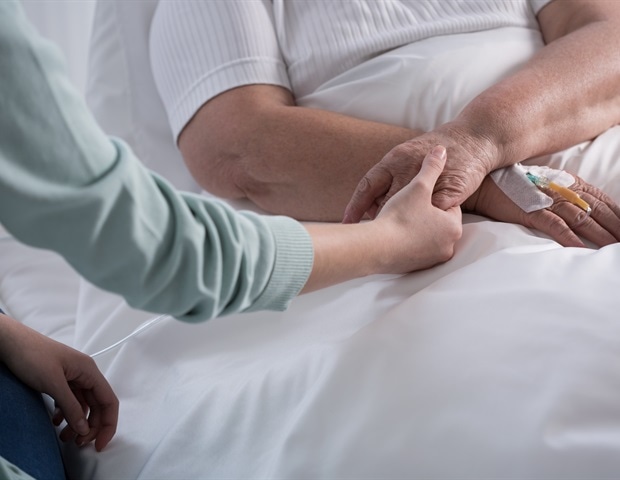Psilocybin-assisted psychotherapy resulted in significant reductions in depression among clinicians who provided front-line COVID-19 care in 2020 and 2021. These reductions were measurably greater than those experienced by the cohort of clinicians who received a placebo instead.
Findings from this double-blind, randomized clinical trial are to be published in JAMA Network Open at 8 a.m. PST Thursday, Dec. 5..
For doctors and nurses who feel burned out or disillusioned or disconnected from the patient care they want to provide, this study shows that psilocybin therapy is safe and can help these clinicians work through those feelings and get better.”
Dr. Anthony Back, lead investigator
He is an oncologist, palliative care specialist and professor at the University of Washington School of Medicine in Seattle.
The research team began recruiting in December 2021, well into the pandemic’s second wave. At that point, more than 800,000 U.S. deaths had been attributed to the SARS-CoV-2 virus.
About 2,200 clinicians from across the United States applied for the study’s 30 slots. The participants -; all clinicians who met criteria for providing front-line pandemic care -; were chosen by lottery. All had seen death and dying at a rate and intensity they had never experienced before, Back said.
At the study’s outset, the participants were confirmed as having no prepandemic mental health diagnoses but currently experiencing moderate to severe symptoms of depression, as measured by a rating scale. They were then randomized to the psilocybin group or the control group, but without knowing which group.
Back said the 30 enrollees described being exhausted and experiencing crises of confidence, emotional detachment from patients, withdrawal from loved ones and colleagues, and, for some, doubts about whether their medical career was still viable.
“Some people who came into the study were really in despair,” he said. “A number of people said, ‘I feel like a robot. I know I’m doing the right things technically. I know I’m saying the right words, but I say them and I’m talking to families who have a loved one who is dying, and I feel nothing -; and I know that something is wrong.'”
The study compared whether two preparation sessions, followed by a single session using synthesized psilocybin (25 mg dose), followed by three integration sessions reduced participants’ depression symptoms more effectively than the same sequence of sessions with a placebo (niacin, 100 mg).
Two facilitators experienced in psychedelic-based counseling conducted the intervention sessions.
From participants’ first prep session to 28 days later, psilocybin group members’ depression symptoms declined by an average of 21.33 points, per the rating scale, compared with an average reduction of 9.33 for placebo group members.
The findings provide evidence, Back said, that guided psilocybin therapy is “dramatically different” than conventional psychotherapy.
Among the 15 people who got the placebo, depression scores dropped slightly, on average, but the people in the psilocybin group had “much larger drops that were quicker … and were more durable,” he said.
“I think psilocybin gave them the opportunity to really see their own feelings and see their own situation in a way that they could have more compassion for themselves and more understanding about what had really happened,” Back said. “It was effective because it gave them a new perspective on what they were facing, in a way that they could take action.”
After the participants had completed the day 28 questionnaire, thereby finalizing the study data, the researchers invited those who had received the placebo to go through the same sequence of sessions with psilocybin.
Will Koenig, a critical-care flight nurse, said receiving counseling with a placebo resulted in “no change, no improvement, no decrease in burnout.” His subsequent session with psilocybin, however, was “completely different.”
“It gave me this sense that (human) suffering can be transcended and transformed, and that’s our natural state. It seemed like I was creating the suffering I was experiencing … and that letting myself be tied up in in suffering that I created can only detract from the care that I provide to future patients,” Koenig said.
Another participant, Dr. Sarah Kirsch, a Seattle-area internist, said she struggled with her inability to do much for patients who were dying with COVID-19.
“I felt inept,” she said, “I had limited ability to help people at a time when they’re at the sickest that they’ll be in their life. We have remdesivir and steroids and ventilators, but those are not curative.”
Psilocybin, she said, “helped me to feel more open and to forgive myself and help me to accept myself as a person and a provider at a hospital.”
At the time of the study, Rachel Drayer was an emergency department physician assistant in Bellevue, near Seattle. It was work that left her feeling frantic and discordant, she said.
“(In) the work that I do now, my body feels calm and quiet. It feels … deeply peaceful,” said Drayer, who today lives in rural Wenatchee, Washington, and operates a preventive-health clinic for menopause. “This study changed my life.”
The Steven & Alexandra Cohen Foundation funded the study. The Usona Institute provided the psilocybin for the trial. Cybin funded the training for clinicians who provided psychedelic-assisted psychotherapy. The Rita and Alex Hillman Foundation and Riverstyx Foundation provided supplemental funding for specific personnel in the study.
Source:
Journal reference:
Back, A. L., et al. (2024). Psilocybin Therapy for Clinicians With Symptoms of Depression From Frontline Care During the COVID-19 Pandemic. JAMA Network Open. doi.org/10.1001/jamanetworkopen.2024.49026.
Source link : News-Medica

